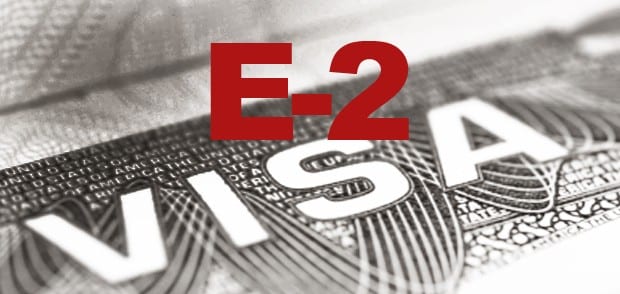
An E-2 visa is a great option if you want to start a business in the U.S., you have invested a substantial amount of money in the U.S. or you are in the processing of investing the money, and you plan to hire U.S. workers. Please see the E-2 requirements when you click here.
Dual Citizenship: National of two E-2 treaty countries
If you have dual citizenship, you can choose which nationality to use when applying for an E-2 visa at a US Consulate, provided that both countries have an E-2 treaty with the United States. For example, if you are a citizen of both United Kingdom and France, you could qualify based on either of these nationalities since both have E-2 treaties with the United States.
Dual Citizenship: National of an E-2 treaty country and a non E-2 treaty country
If you have dual citizenship but one of the countries that you are a national of does not have an E-2 treaty with the United States, you can still qualify for the E-2 visa through your other nationality. For example, let’s say you are a citizen of both United Kingdom and Brazil. While Brazil does not have an E-2 treaty with the United States, United Kingdom does and you could apply for an E-2 visa using your UK nationality.
Dual Citizenship: National of E-2 treaty country & U.S. national
However, a question comes up whether you can apply for an E-2 visa if you are a national of an E-2 visa treaty country and you are also a naturalized U.S. citizen.
Example
You were born in Germany and you are a national of Germany. You recently acquired U.S. citizenship by naturalization. You want to set up a company in the U.S. and bring 5-10 German employees to the U.S. You are now thinking whether you could set up an E-2 company in the U.S., register it as an E-2 company, and bring employees from Germany under either the supervisory/managerial/executive category or specialized employee category.
The immigration regulations are silent on the specific issue of whether a person who holds a U.S. citizenship and a treaty country citizenship could register an E-2 company and bring E-2 employees to the U.S.
However, the Foreign Affairs Manual (“FAM”) explicitly states that an E-2 investor with the nationality of a treaty country who is also a green card holder does not qualify to bring E-2 employees to the U.S.
The interpretation among immigration practitioners is that because a green card would disqualify a person to register an E-2 company and bring E-2 employees to the U.S., having a U.S. citizenship would also be such a disqualification.
Why would someone want to register an E-2 company if the person is a U.S. citizen?
Probably the main reason why a U.S. national would want to set up and register an E-2 company is to bring E-2 employees to the U.S.
Example
In the example above, let’s say that you have owned a restaurant in Germany for many years. You now want to set up a similar restaurant in the U.S. and you would like to bring the restaurant manager and the chef to the U.S. to start the operations. E-2 visa would be normally a great option as the chef could potentially qualify under the specialized employee category and the restaurant manager could potentially qualify under the supervisory/managerial/executive category. If you are a U.S. citizen, you would not be allowed to register the E-2 company and bring the employees to the U.S. as E-2 employees and you would have to bring the employees to the U.S. on some other visa, such as an H-1B or TN visa.


